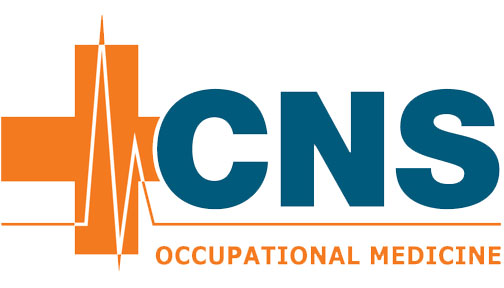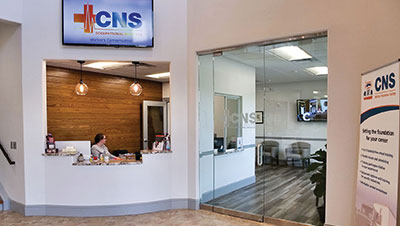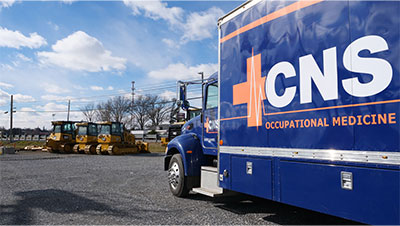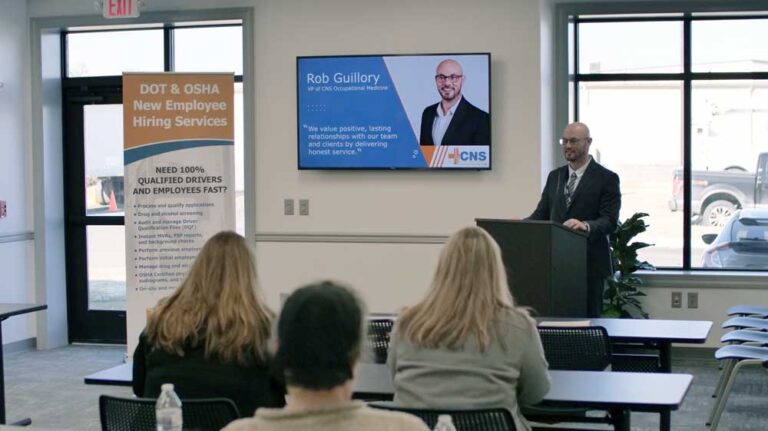Concentra was requiring CDL employees to sign a medical record release form for random U.S. DOT drug testing. Employees who refused to sign this release were denied the opportunity to take the drug and alcohol test and later deemed as a refusal.
Professionals understand that federally regulated drug tests are necessary, especially for safety-sensitive positions, and the consequences for failed tests are harsh.
These consequences are in place to protect employees, employers, and the public. But some policies go too far and ruin careers before a drug test is even given.
Recently, the American Postal Workers Union (APWU) received information that the U.S. Postal Service, through Concentra, is requiring postal employees to sign a release of information that allows access to the employees’ personal health records and information during drug and alcohol testing.
Employees received a prompt during online check-in that stated:
“Your employer requests you register online for faster check-in at your upcoming visit,” followed by “I give Concentra authorization to release to my employer, insurance company, and their representatives… including any medical information, including any psychotherapy notes, psychiatric information, sexually transmitted diseases, alcohol and drug abuse and /or HIV/AIDS status, which is obtained as part of the evaluation and /or treatment for this work-related injury/illness or employment-related examination.”
Employees who refuse to sign a Release of Medical Information form were denied the opportunity to take the upcoming D&A test.
This medical information is required, according to USPS medical suitability policy:
“A medical assessment is administered only after an applicant is selected and a conditional offer of employment extended. To determine medical suitability to perform the functions of a particular position, a medical assessment is mandatory for all: Career and noncareer appointments; Employees applying for positions that have more demanding physical requirements than the employee’s present position.“
“Medical information must not be requested before a bona fide job offer is extended to the applicant. Medical personnel may require medical records from physicians, clinics, or hospitals to conduct a medical assessment. Applicants must obtain such records without expense to the Postal Service. Medical personnel coordinate obtaining this information. These records are filed in the medical office.”
The important problem here is that the failure to take a scheduled D&A test is considered a “refusal to test” or treated as a positive test, which:
- uploads into the D&A Clearinghouse database,
- suspends driving privileges,
- requires the driver to complete the return-to-duty (RTD) process to return to safety-sensitive work, and
- prevents the driver starting work until the RTD process is complete (if they change employment).
Additionally, the employer has a company policy that indicates whether to terminate the driver, allows for a second chance program or allows the driver to perform non-safety sensitive work.
This requirement imposed by the U.S. Postal Service and Concentra to sign a release of personal medical information is inconsistent with DOT and FMCSA regulations and should never have been considered a refusal to test.
Why is a “Refusal to Test” important to document?
This is all about safety.
If a professional CDL driver is on drugs, he or she might suffer from limited motor skills, depth perception, and reaction time.
These issues often lead to accidents that can be dangerous for other drivers, passengers, and pedestrians.
In fact, according to the National Transportation Safety Board, 35% of fatal truck accidents are caused by drug use.
Additionally, a recent analysis of data found that 27.6% of truck-driving respondents consumed drugs.
The report states that it “appears that truck-drivers choose stimulant substances as a form of performance enhancing drug, to increase productivity. However, chronic and high dose consumption has been shown to decrease driving skills, placing these professional drivers at risk for health and road safety.”
Drug testing is required by the Department of Transportation for all CDL drivers for pre-employment, random, post-accident, and reasonable suspicion because it helps ensure that only safe, healthy drivers are on the road.
What is a DOT “Refusal to Test”?
Refusing to take a drug test has the same consequences as failing a DOT drug test.
Not only is it considered a “positive” drug test, but the driver is also immediately removed from performing safety-sensitive functions until successfully completing the return-to-duty process with a DOT-qualified substance abuse professional.
Refusals to submit to a drug or alcohol test are defined in §382.107. Some refusals are determined by medical review officers (49 CFR Part 40 Subpart G) and alcohol technicians (49 CFR Part 40 Subpart N).
Several scenarios that the DOT outlines as a refusal to test, include:
- Failure to appear for any test (except a pre-employment test) within a reasonable time, as determined by the employer, consistent with applicable DOT agency regulations, after being directed to do so by the employer. This includes the failure of an employee (including an owner-operator) to appear for a test when called by a C/TPA.
- Failure to remain at the testing site until the testing process is complete.
- Failure to provide a urine specimen for any drug test required by this part or DOT agency regulations.
- Failure to permit the observation or monitoring of your provision of a specimen (in the case of a directly observed or monitored collection in a drug test).
- Failure to provide a sufficient amount of urine when directed, and it has been determined, through a required medical evaluation, that there was no adequate medical explanation for the failure.
- Failure or decline to take an additional drug test the employer or collector has directed you to take.
- Failure to undergo a medical examination or evaluation, as directed by the MRO as part of the verification process, or as directed by the DER under § 40.193(d).
- Failure to cooperate with any part of the testing process (refuse to empty pockets when directed by the collector, behave in a confrontational way that disrupts the collection process, fail to wash hands after being directed to do so by the collector).
- Failure to follow the observer’s instructions to raise your clothing above the waist, lower clothing and underpants, and to turn around to permit the observer to determine if you have any type of prosthetic or other device that could be used to interfere with the collection process (for an observed collection).
- Possession of or wearing a prosthetic or other device that could be used to interfere with the collection process.
- Admitting to the collector or MRO that you adulterated or substituted the specimen.
It is important to note that if an employee refuses to take a non-DOT test or to sign a non-DOT form, they have not refused to take a DOT test. There are no consequences under DOT agency regulations for refusing to take a non-DOT test.
What did Concentra do wrong?
While not agreeing to something in the online check-in sounds like the employee “failed to cooperate with any part of the testing process”, the FMCSA and DOT do not require the testing clinic to provide a medical release form when taking a DOT Physical or D&A Test.
This was also spelled out in the postal worker union collective bargaining agreement with USPS.
This mistake by Concentra could have placed many professional and qualified drivers out of a job and hurt their career for years.
But, what do we not know yet?
- Who deemed it a requirement to sign the medical release form?
- Who deemed it a “refusal to test”?
- Did/does Concentra use this same pre-check-in medical release requirement for other groups/companies?
- If so, how many others been given a “refusal” outside of USPS?
- Does Concentra still use this check-in requirement?
Need a Better Consortium or Testing Clinic for Drug and Alcohol Services?
At CNS, we offer a comprehensive Drug and Alcohol Consortium Service and are a certified consortium and third-party administrator (C/TPA).
Our experts ensure that all DOT rules and regulations are followed, including the implementation of random drug tests for you and your drivers, updating your company drug testing policies, record retention and document purge management.
We take all the necessary steps and precautions to keep you and your drivers compliant with the DOT drug and alcohol testing requirements.
For more information, contact us at 888.260.9448 or info@cnsprotects.com.










